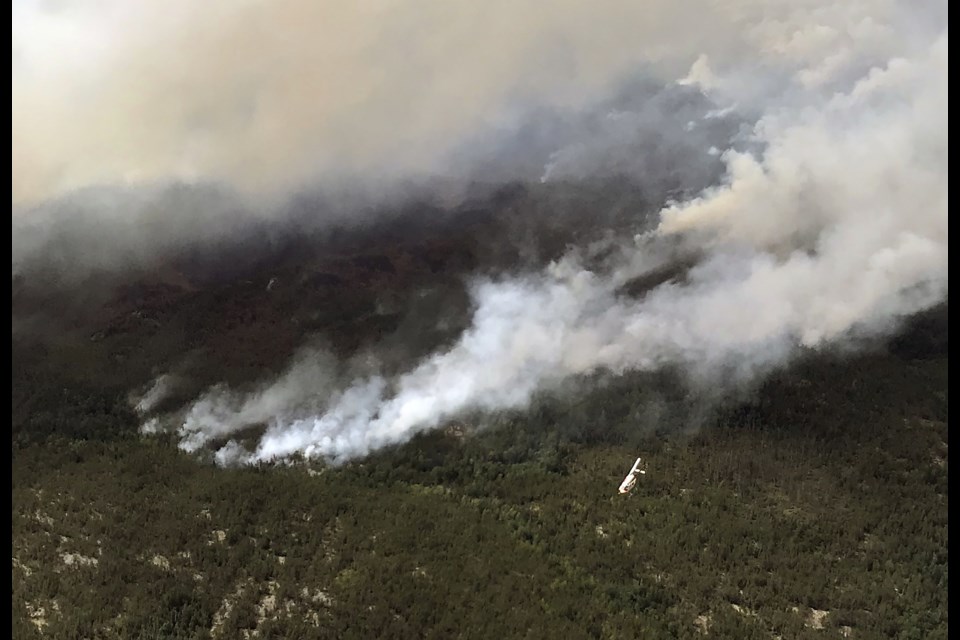RED LAKE, Ont. - People in Red Lake are preparing for a possible evacuation as dry conditions continue to fuel massive forest fires just 20 kilometres from the community that are moving at a rapid pace.
“The size of this fire and magnitude of this fire is unbelievable,” said Red Lake Mayor Fred Mota.
“The burn rate of 40 metres every minute is worrisome, especially if winds are coming from the west and blowing to the community. We trust the MNRF and community partners and everyone is doing a fantastic job, but now it is up to mother nature to blow those winds east and bring some rain.”
There are currently two large forest fires encroaching on the community, including Red Lake 77, which is burning at more than 18,000 hectares and Red Lake 16, burning at more than 118,000 hectares.
Mota said Red Lake 77 is approximately 20 kilometres away from the smaller community of Madison just west of Red Lake and there are growing concerns that the two fires, along with other smaller fires in the area, could merge later on Thursday.
“When they connect, this fire is going to be over 150,000 hectares in size. Right now, there is no rain in the forecast, which is troublesome to hear,” he said.
“We are very wind dependent on what is happening with the fire. The latest is the winds are blowing out of the southwest this morning, so it is blowing the fire to the north but also a little to the west and there is concern for that.”
Residents of Red Lake are being prepared for a possible evacuation order, while vulnerable members of the community including long-term care residents and hospital patients have already been evacuated or in the process of doing so.
This is a familiar situation for the residents of Red Lake, who were forced to evacuate last August due to threats from forest fires. But unlike last year when people were given only a matter of hours to prepare, Mota said it won’t be as frantic this time.
“This time we at least have time to prepare our residents and sharing information so everyone can make informed decisions,” he said. “We have residents who have already evacuated on their own accord.”
Mota added he is aware that there is limited space in communities around Northern Ontario, with evacuees from several First Nations already being evacuated to Kenora, Thunder Bay, Dryden, and Timmins due to nearby forest fires.
“We are working around the clock to secure some hotels in the Winnipeg area. We are looking at busing and transportation,” Mota said. “We are bringing everything together right now so when the evacuation occurs we are prepared so we have all the information lined up and ready to go.”
The forest fire situation in the north continues to get worse with a lack of rain throughout the region.
Chris Marchand, information officer with the Ministry of Natural Resources and Forestry, said the fire hazard continues to escalate and existing fires continue to grow in size.
“Yesterday saw as many as 40 new fire starts in the region alone, mostly the result of lightning,” he said.
That doesn't mark the busiest single day for new forest fires this season, as June 6 saw as many as 46 new fires in a 24-hour period.
The total number of fires burning in the region also dropped to 86 as of Thursday, with fire crews working to extinguish new, small fires to prevent them from spreading out of control.
“They have called seven fires out already today and that is evidence of those crews out there working to keep those new fires small and [from] growing into larger problems,” Marchand said. “Some precipitation in the forecast would be well met in terms of the fire situation. The crews in these larger fires are working diligently to protect communities and infrastructure.”
There are approximately 100 Ontario fire crews working in the Northwest, with an additional team of nine fire fighters from Wisconsin assisting and several aircraft from Quebec.
